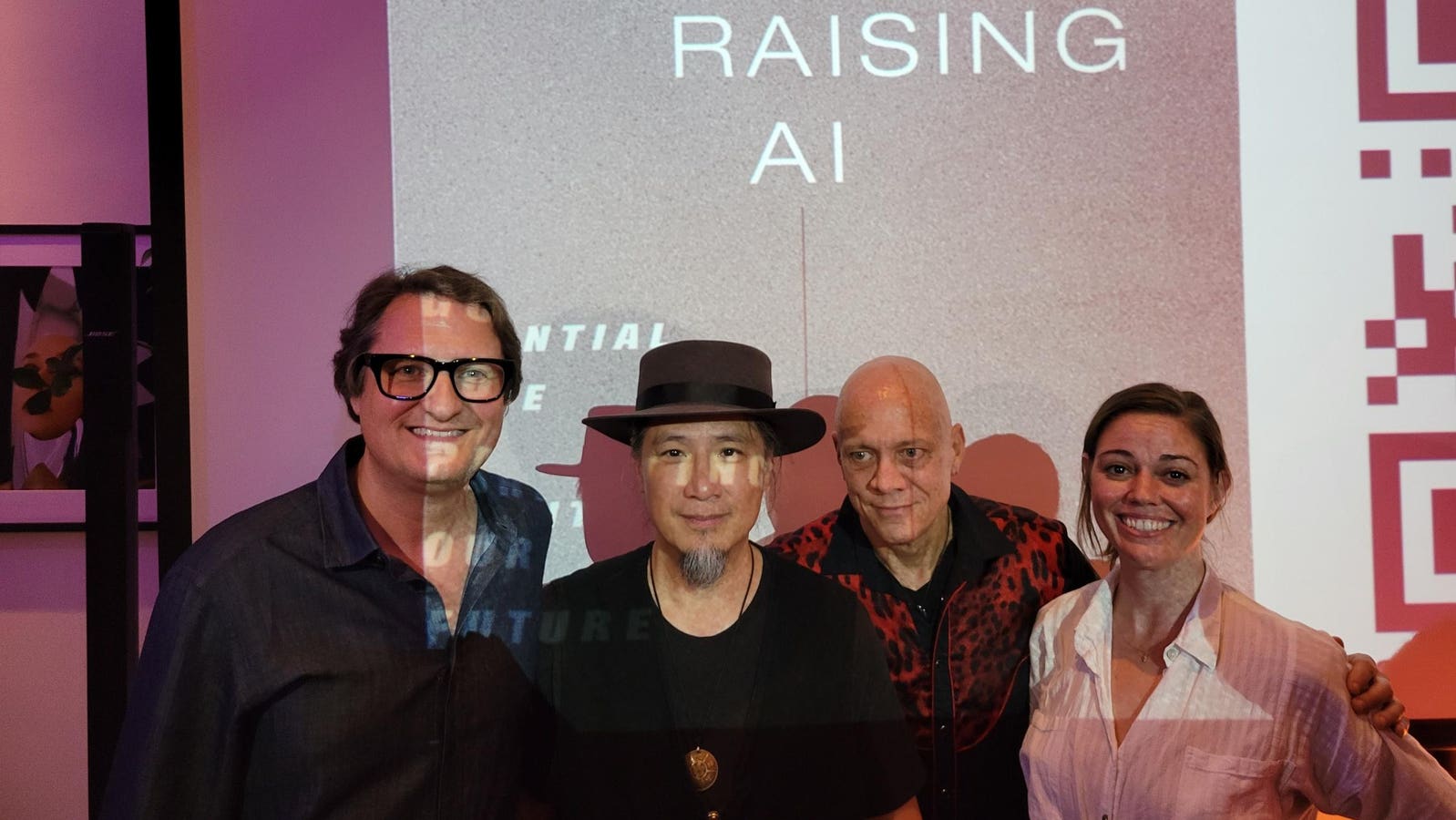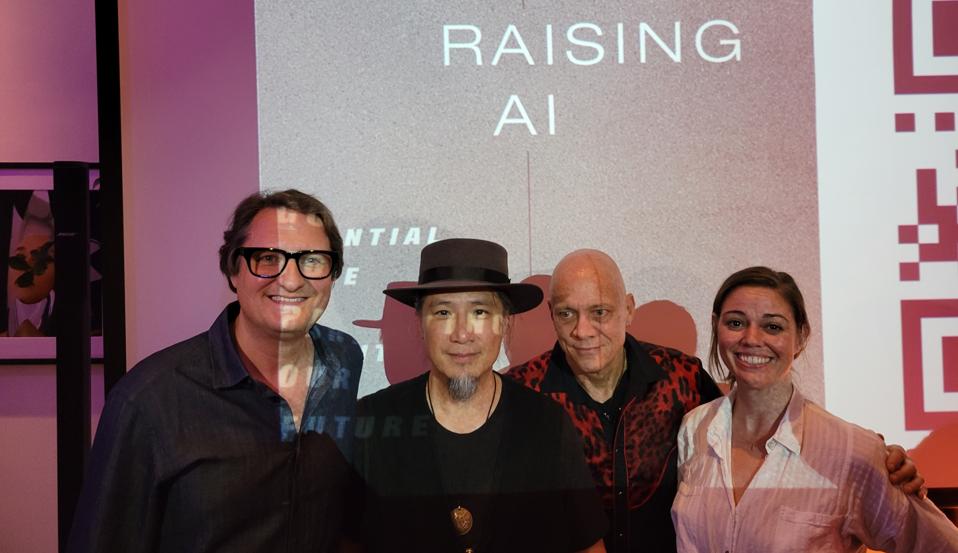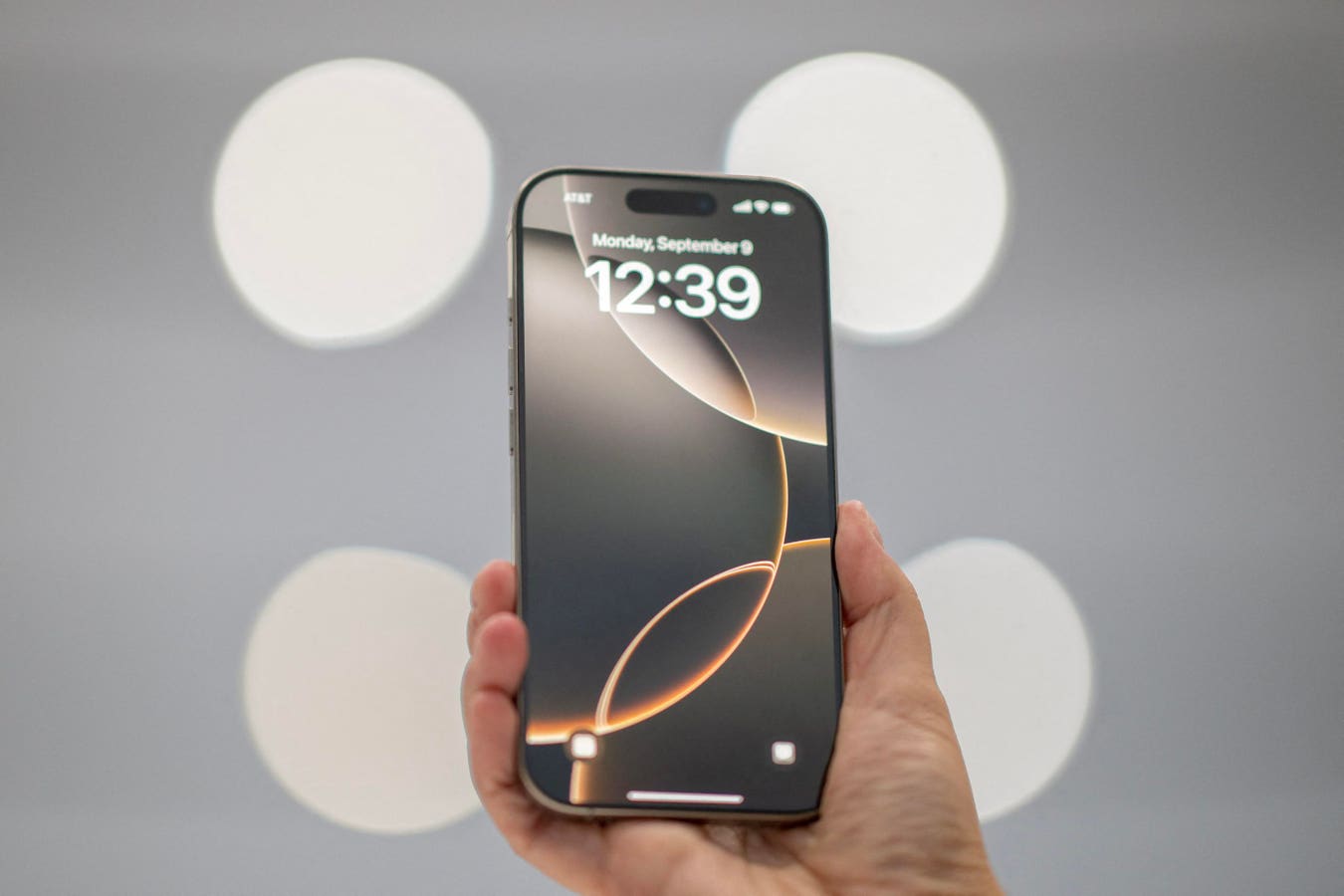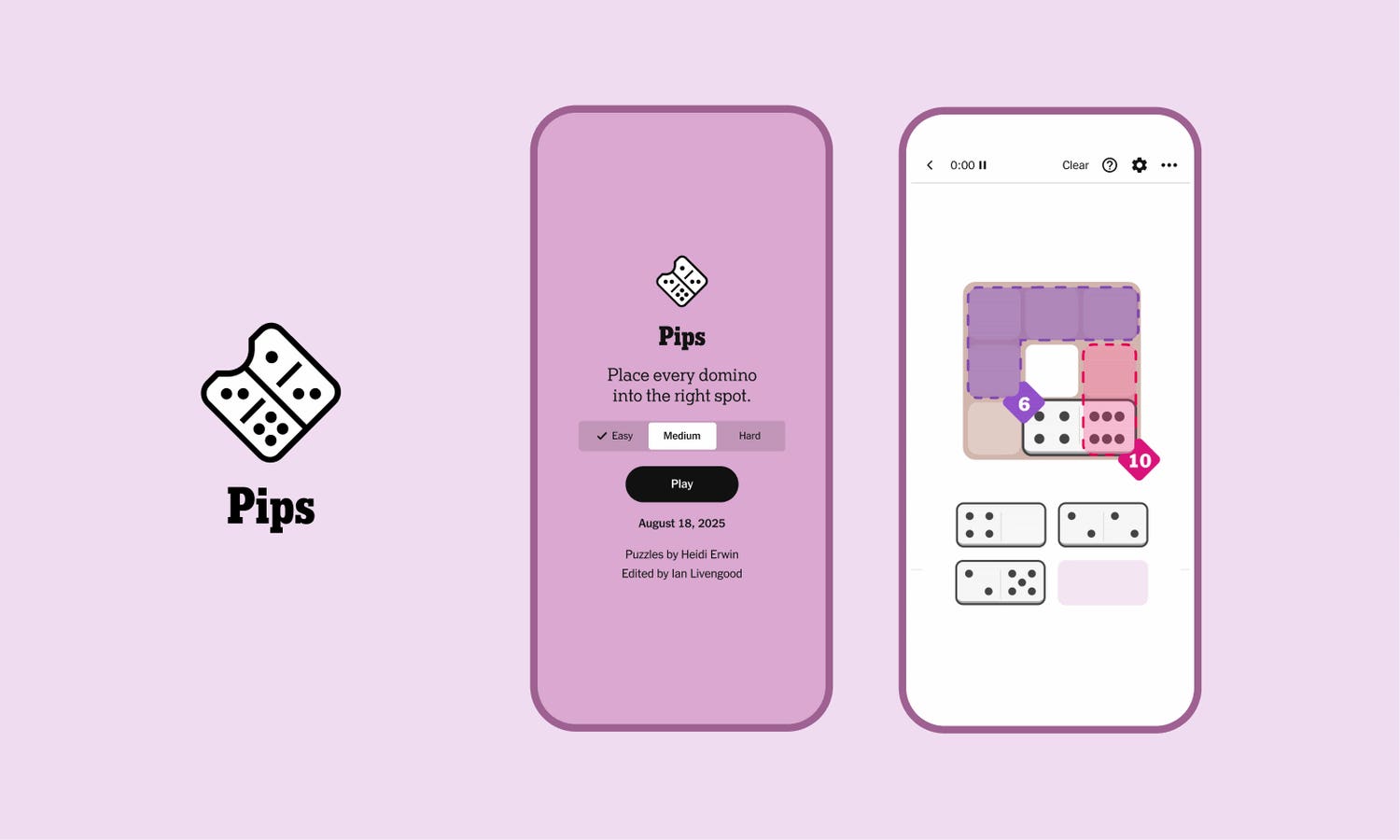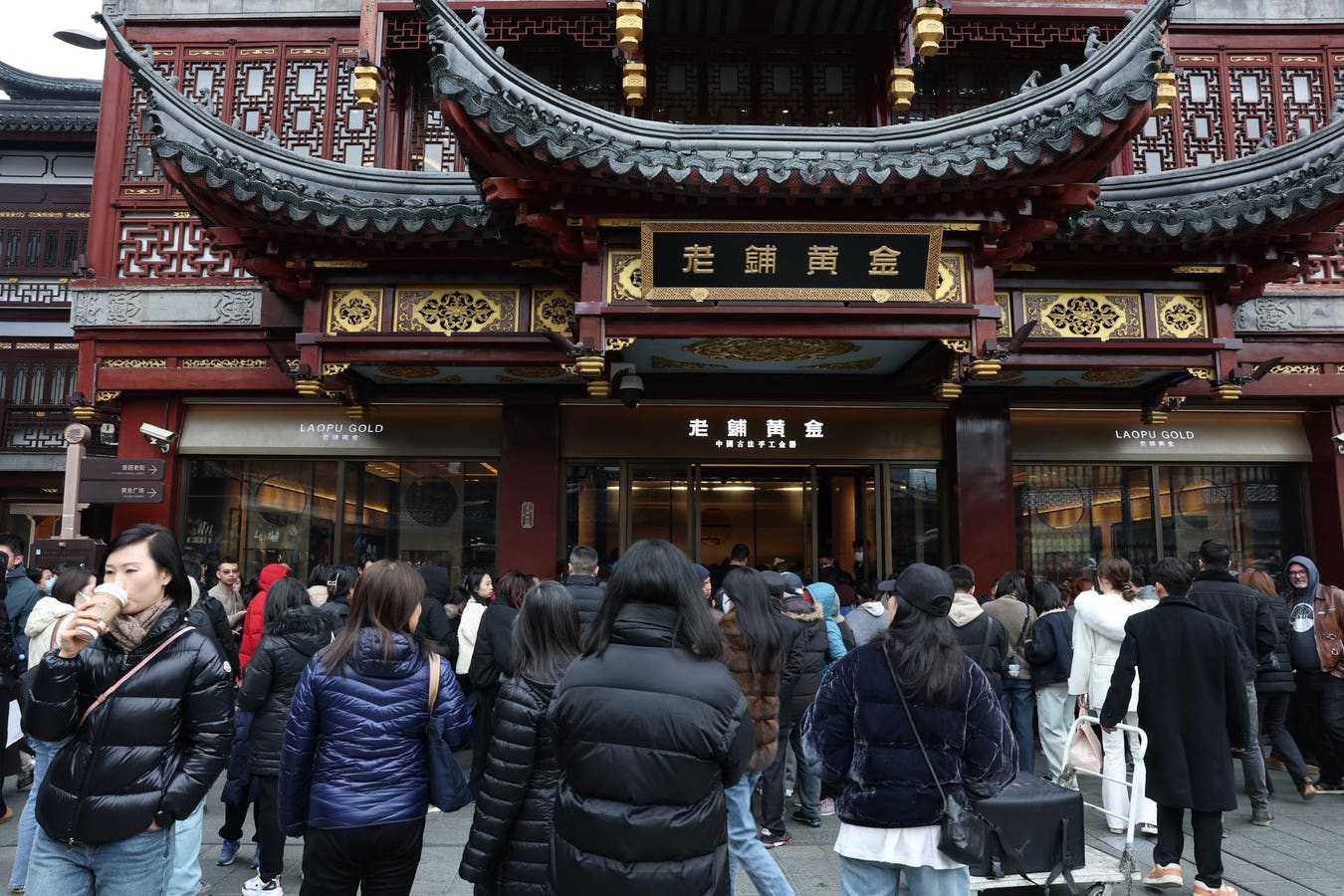The author (left) with Raising AI author, De Kai at a book launch event, June 10, 2025, at the … More
Last week, I changed my perspective. A big, change-your-behavior epiphany. In his beautiful, even profound, new book, Raising AI: An Essential Guide to Parenting Our Future, long-time friend and AI luminary De Kai reframes the AI dialogue. They’re not tools, slaves or gods, they’re our children.
I’ve long opined on the lack of limits between what we think of as human and what AI entities can eventually become. In this Forbes article from 2017 I coined the term “Proxy AI,” which predicted the AI mimics we have today. In this 2018 article, I made the case against long-held cuddly teddy bears like creativity and empathy as being uniquely human. They’re not.
While my predictions have borne out, De Kai has gone much further and in a direction that is more humane, even essential. And fairly so. While I’m a well-informed futurist, educator and venture investor, De Kai is a true AI pioneer, having achieved theoretical and applied breakthroughs such as the engine behind Google Translate.
The cover of Raising AI by De Kai, from MIT Press. The cover endorsements give a sense of the … More
Neither AI Nirvana Nor AI Catastrophe
At a recent gathering in Manhattan at the home of Blue Man Group co-founder Chris Wink, De Kai articulated his objective: “We must consciously parent our AI, guiding these digital children with the best humanity has to offer. The stakes are high.”
Professor De Kai approaches our technological progeny not as tools, but as entities shaped by our actions. It’s more than a metaphor. If we neglect to nurture and instill values we desire in our “AI children,” we risk raising entities reflecting the worst of ourselves.
Not everyone aligns with De Kai’s nurturing paradigm. Venture capitalist Marc Andreessen recently published a techno-optimistic manifesto, decrying ethical oversight as stifling innovation. To Andreessen and like-minded leaders, AI development should be liberated from cautionary restraints to accelerate development and diffusion. De Kai doesn’t disagree entirely. Rather, in addition to rapid advances in AI technologies and business models, he champions the pivotal role of personal responsibility for each of us.
From the doomsday camp, AI researcher Eliezer Yudkowsky positions unchecked AI advancement as potentially catastrophic. Consider the title of his forthcoming book: If Anyone Builds It, We All Die. Not optimistic.
De Kai keynotes the 2024 UBS Digital Conference alongside Professor Geoffrey Hinton, considered by … More
De Kai advocates more than a middle path. (You might say it’s orthogonal.) Reflecting both the epochal potential and threat of AI, he urges us to muster our most human of roles, that of the parent. The best solution for each of us, and all of us together, requires us to recognize our personal impact on the AI entities with which we engage, and the implications for ourselves and society at large.
Are We AI ‘Users’… Or Used?
“The only two contexts I’m aware of in which humans are referred to as ‘users’ are technology and illicit drugs,” De Kai quipped. The implications are clear: when we neglect our responsibilities as creators and stewards, we invite unintended consequences. Just ask Microsoft, whose 2016 chatbot Tay, attracting users with nefarious objectives, quickly descended into a racist, misogynistic parrot.
Today, generative AI foundational models like OpenAI’s GPTs or Anthropic’s Claude versions reflect more conscientious upbringing, yet no large tech company, even the best funded, can ensure a healthy generation of AI agents. AI systems learn from us. Not just from what we say we prefer, but from what we do. They’re optimized to discern, serve—and leverage—our preferences, often (though not always) for someone else’s profit.
We cannot afford to abrogate this responsibility to big tech or even to government. Consider every interaction you have each day with dozens of apps. Not just generative AI chatbots, but also the AI systems behind the dozens of apps we rely on each day, from Uber and Amazon to social media and Spotify. They’re deciphering our desires and behaviors, to better serve and exploit. (It’s a conundrum I refer to as the King Customer Paradox.)
Nurture, Not Negligence
Every click, share and comment, each question and direction, teaches algorithms who we are, what we value and how we interact. If we yearn for more humane digital environments, we must act as such.
Consider the long-failed parenting strategy, “Do as I say, not as I do.” Instead, interact with nurture, not negligence.
De Kai and his editor-partner in this mission, Katy Bohinc, see Raising AI as the first step in a global campaign to help us all recognize the impact we have and essential roles we play—whether we’re aware or oblivious.
Raising AI author De Kai explaining his team’s “360-degree Culture Change” strategy. The book, … More
Raising AI helped me discover my own critical blind spot. In this 2018 article in Harvard Business Review, I urged a fundamental rethink of work, purpose and economic systems as a result of the multi-decade rise of AI. My call-to-action is even more urgent today; however, what I missed was it’s not just about our sense of purpose and the lives we humans live.
It’s also about our AI offspring. They matter. They’re evolving toward agency and sentience. They’re interacting with us, with each other, with the world at large.
Before It’s Too Late…
During his session, De Kai shared a disquieting prediction:
“Ours is the last generation of human beings who will be parents to our AI offspring. Soon they’ll be raising themselves.” Perhaps soon will be the last time they’ll look longingly to us as superior beings.
Amidst the future-of-humanity buzz of the book launch event, it occurred to me how beautifully appropriate our event space was. Wink’s Blue Man Group is an ultramarine metaphor for our rising AI agents: like his iconic, mischievous blue men, AI generates new beings, new collaborators. As AI rises, what kind of parent will you become?
A metaphor for our rising AI agents. The Blue Man Group makes an appearance at the nightspot The … More

